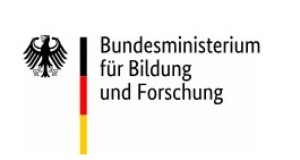Project description
The DiSko project focuses on municipal school authorities, which play a central role in designing and implementing successful change processes in the school system. In close cooperation with the school authorities in the cities of Freiburg and Munich, processes in the context of digital transformation are being examined and, in the course of the project, recommendations for action are being developed for other municipal school authorities, schools, and teachers. These recommendations can be implemented directly in the process, but can also be transferred to other municipal school authorities.
Cooperation structures and networks are particularly important in this context. The project will examine these within and between school authorities and schools, as well as with extracurricular actors, and will explore how such networks can be supported by school authorities. Within the framework of the OER strategy's funding lines, these provide a basis for the implementation of connectable and interlinked infrastructures, which are required for the educational materials and practices to be developed in the project. A final conference at the end of the project is intended to reach further municipal school authorities.
Within the project, the various levels will be addressed with the following questions, among others:
- School authority:
What are the school authorities' intentions behind introducing digital infrastructure? What measures are they taking and how are these being evaluated? How can managers learn and develop the skills needed to implement the transformation in schools as part of digitalization? What organizational development needs exist within municipal organizations to achieve this? - School administrators:
What measures are school administrators taking at their schools, and how are these communicated and promoted among the teaching staff? How do they communicate with the school authorities and within internal and external networks? - Teachers:
How are teachers dealing with the digital transformation process at their schools? What support and training opportunities for digital learning strategies are they aware of and using? What needs do they see on the part of school management and education administrators?
In addition, it is important to identify interfaces between the different levels more precisely, derive solutions from them, and develop insights and guidelines for organizational models that result from the process analysis and ensure the success of school digitization. Another goal of the project is to determine the relevant success factors and identify important influencing factors.
Overview
- brief description
- The project focuses on municipal school authorities. In close cooperation with two school authorities, the city of Freiburg and the city of Munich, digital change processes are being examined and, in the course of the project, tested for generalizability together with other municipal school authorities.
- project management
-
Prof. Dr. Bernhard Schmidt-Hertha (LMU Munich),
Prof. Dr. Katja Scharenberg (LMU Munich),
Prof. Dr. Thomas Eckert (LMU Munich) - project collaboration
-
Catharina Blanke, M.A. (LMU Munich),
Philipp Oberparleiter, M.A. (LMU Munich) - student employees
-
Helena Gnann (LMU Munich),
Daniela Schwab (LMU Munich) - project duration
- December 1, 2024 to November 30, 2028
- network partners
- Freiburg University of Education, Center for Teacher Training (ZELF); +RASMUSSEN GmbH & Co KG; P&W Projekt GmbH; City of Munich, Department of Education and Sports; City of Freiburg im Breisgau
- funding
- Federal Ministry for Education, Family Affairs, Senior Citizens, Women and Youth
The project is funded under the "OE_Struktur" funding line.

